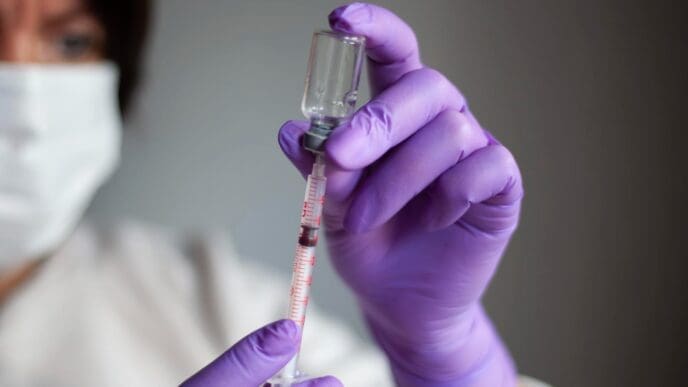The Gut Feeling Is Real: How Your Digestive Health Is Directly Linked to Anxiety
A growing body of scientific evidence is uncovering a profound and powerful connection between the trillions of microbes living in our digestive tract and our mental well-being. For the millions of people worldwide who live with anxiety disorders, this research suggests that the root of their distress may lie not just in their brain, but also in their gut. This intricate communication network, known as the gut-brain axis, functions as a bidirectional highway, where signals from the gut can directly influence mood, stress, and anxiety, and conversely, feelings of anxiety can wreak havoc on digestive health. Understanding this link is revolutionizing how we approach mental health, offering new, tangible strategies for managing anxiety from the inside out.
The concept hinges on the gut microbiome—the complex community of bacteria, viruses, and fungi residing in our intestines. This internal ecosystem is now understood to be a critical player in regulating everything from our immune system to our mood. By producing key neurotransmitters, controlling inflammation, and communicating directly with the brain via the vagus nerve, these tiny organisms wield significant power over our psychological state. For anyone who has ever felt “butterflies” in their stomach when nervous or a “gut-wrenching” sense of dread, science is now confirming that these are not just metaphors, but manifestations of a deep biological reality.
What is the Gut-Brain Axis?
The gut-brain axis is the term scientists use to describe the constant, two-way dialogue between the central nervous system (CNS), which includes the brain and spinal cord, and the enteric nervous system (ENS). The ENS is a vast and complex web of neurons embedded in the walls of our gastrointestinal tract.
Often called the “second brain,” the ENS is so extensive that it can operate independently of the brain, managing the complex processes of digestion on its own. However, it is in constant communication with the brain, sharing information that impacts everything from hunger cues to emotional states.
This communication happens through several pathways. It occurs chemically through hormones and neurotransmitters, immunologically through molecules that regulate inflammation, and physically through the vagus nerve, a massive nerve that runs directly from the brainstem to the colon. It is this intricate and multi-faceted connection that allows our gut feelings to influence our thoughts, and our thoughts to influence our gut.
How the Gut Influences the Brain and Anxiety
While the connection is a two-way street, the influence of the gut on the brain is a particularly exciting area of mental health research. An imbalanced or unhealthy gut microbiome, a condition known as “dysbiosis,” can contribute to the development or worsening of anxiety symptoms through several key mechanisms.
Neurotransmitter Production
Many people are surprised to learn that the gut is a major production hub for neurotransmitters, the chemical messengers that govern our mood. In fact, it is estimated that over 90% of the body’s serotonin, a crucial neurotransmitter for feelings of happiness and well-being, is produced in the gut by specific gut bacteria.
Another key neurotransmitter, gamma-aminobutyric acid (GABA), which has a calming effect and is often targeted by anti-anxiety medications, is also produced by gut microbes. When the gut microbiome is out of balance, the production of these essential mood-regulating chemicals can be impaired, potentially leading to lower levels in the brain and contributing to feelings of anxiety and depression.
Inflammation and the Immune System
The gut microbiome plays a central role in training and regulating our immune system. When the gut is populated by a diverse range of beneficial bacteria, it helps maintain a strong intestinal lining. However, factors like a poor diet, chronic stress, or illness can lead to dysbiosis.
This imbalance can compromise the integrity of the gut wall, leading to a condition known as increased intestinal permeability, or “leaky gut.” This allows bacteria and inflammatory molecules to “leak” from the intestines into the bloodstream, triggering a body-wide inflammatory response. This chronic, low-grade inflammation can reach the brain, a state called neuroinflammation, which is strongly linked to anxiety disorders and other mental health conditions.
The Vagus Nerve: A Direct Highway
The vagus nerve is perhaps the most direct and important physical link in the gut-brain axis. It acts like a fiber-optic cable, sending a constant stream of information from the gut’s “second brain” up to the brain in your head.
Remarkably, gut microbes can produce compounds that directly stimulate the vagus nerve. These signals travel to brain regions responsible for processing stress and emotion. Animal studies have shown that the anxiety-reducing effects of certain beneficial bacteria (probiotics) are eliminated when the vagus nerve is severed, demonstrating its critical role in this communication pathway.
Stress Response and Cortisol
Our primary stress response system is the hypothalamic-pituitary-adrenal (HPA) axis. When we perceive a threat, this system floods the body with hormones, including cortisol, to prepare us for “fight or flight.” While essential for survival, a chronically overactive HPA axis is a hallmark of anxiety disorders.
Emerging research shows that the gut microbiome helps regulate the HPA axis. A healthy, balanced microbiome can help maintain a normal stress response. Conversely, gut dysbiosis has been linked to HPA axis hyperactivity, leading to elevated cortisol levels and a heightened state of anxiety and vigilance.
How Anxiety Influences the Gut
The communication pathway is not a one-way street. Just as the gut can influence the brain, psychological stress and anxiety can have a significant and immediate impact on the gut. This can create a vicious cycle where anxiety worsens gut symptoms, and poor gut health further fuels anxiety.
When you experience stress or anxiety, your brain triggers the release of stress hormones. These hormones can alter the gut environment in several ways. They can reduce blood flow to the gut, affect the rhythmic contractions that move food through the digestive system (motility), and even change the composition of the gut microbiome itself, often favoring the growth of less beneficial bacteria.
This explains why anxiety is so often accompanied by digestive issues like stomach pain, bloating, diarrhea, or constipation. These symptoms are hallmarks of conditions like Irritable Bowel Syndrome (IBS), which has an incredibly high co-occurrence with anxiety disorders. The “nervous stomach” is a direct physiological response to your mental state.
Can We Improve Anxiety by Improving Gut Health?
This growing body of research points toward a hopeful conclusion: by taking steps to nurture a healthy gut microbiome, we may be able to better manage anxiety. These strategies should be viewed as complementary to established, evidence-based treatments like psychotherapy and medication, not as replacements.
Dietary Interventions
What you eat is one of the most powerful tools you have for shaping your gut microbiome. A diet rich in diverse, whole foods can foster a healthy internal ecosystem.
- Probiotics: These are live, beneficial bacteria found in fermented foods. Incorporating items like yogurt with live active cultures, kefir, sauerkraut, kimchi, and kombucha can help introduce helpful microbes to your system.
- Prebiotics: These are types of dietary fiber that humans cannot digest but that serve as food, or “fertilizer,” for our good gut bacteria. Excellent sources include onions, garlic, leeks, asparagus, bananas, and whole grains like oats and barley.
- Polyphenols: These are antioxidant compounds found in brightly colored plants, berries, dark chocolate, tea, and red wine. They have anti-inflammatory effects and can encourage the growth of beneficial bacteria.
- Limit Processed Foods: Diets high in sugar, artificial sweeteners, and unhealthy fats can promote inflammation and feed the “bad” bacteria in your gut, contributing to dysbiosis.
Lifestyle Modifications
Beyond diet, other daily habits play a crucial role in maintaining the delicate balance of the gut-brain axis.
- Stress Management: Practices like mindfulness meditation, deep breathing exercises, and yoga can help calm the HPA axis. This reduces the flood of stress hormones that can damage the gut, breaking the vicious cycle between anxiety and digestive distress.
- Consistent Exercise: Regular, moderate physical activity has been shown to increase the diversity of the gut microbiome, reduce inflammation, and act as a powerful natural anti-anxiety intervention.
- Prioritize Sleep: A lack of quality sleep can disrupt the gut microbiome and spike cortisol levels. Aiming for 7-9 hours of consistent, restorative sleep per night is critical for both mental and digestive health.
Emerging Therapies
The field is rapidly advancing, with new potential treatments on the horizon. Scientists are studying “psychobiotics,” which are specific strains of probiotics that may have a measurable positive effect on mental health. While still largely experimental for mental health, procedures like fecal microbiota transplants (FMT), which transfer gut microbes from a healthy donor to a patient, are being investigated for their potential to treat severe psychiatric conditions in the future.
A New Path to Wellness
The age-old wisdom of “trusting your gut” is being redefined by modern science. The link between our digestive system and our brain is not just a feeling, but a complex biological network that profoundly impacts our mental health. For those struggling with anxiety, this understanding opens up a new, empowering frontier for treatment and self-care. By nurturing our gut through diet and lifestyle, we can directly influence the health of our brain. While not a panacea, focusing on gut health provides a tangible, actionable, and promising strategy to complement traditional therapies, helping to calm an anxious mind from the inside out.












